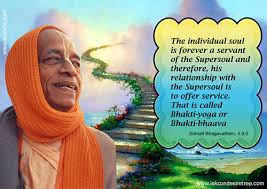Question:
In reality a person assumes different roles from birth till death – starting off as a son, brother, cousin, then a student, husband, father, and grandfather. In addition, there are professional roles like a Teacher/Professor, Mason, Carpenter, Leader, Manager etc.
My question is, many a time simultaneously one has to discharge these many roles and often there comes a time of conflict and a time to prioritize roles. For example, if ones’ wife is sick, one has to attend to her, probably even neglecting other roles which also probably demand one’s time at the same time. For instance, one’s father or mother might be sick at the same time. What should the person do – attend to one’s wife or father or mother or his own son or daughter? How should one decide, since one cannot be at two or three places at the same time? Are there any guiding principles to decide and prioritize?
I have been grappling with this problem for a while and unable to justify my decisions and actions. Any guidelines or principles that you may offer would help me in making good decisions. Ideally, the best way is to leave those decisions to God himself, but practically in real life, often times one is stumped in such complex situations.
Answer by Romapada Swami:
A fundamental basis in good decision making, for a spiritual aspirant, is to consider one’s actual spiritual role and act from that platform. We certainly play variegated roles, but let us consider what is at the core of all those multiple roles? Who are we? Our real identity is we are eternal servants of Krishna, nitya krishna dasa. We act in different capacities – as husband, father, leader etc – all in service to Krishna, like an order-carrier. It follows then that the test of appropriateness of any decision is to consider whether it would satisfy Krishna or how well we have acted in the role of `krishna dasa’.
By nature’s own way, material life is filled with perplexities.
Arjuna was in a similar conflicting situation, torn between his roles
as a ksatriya and those as a relative, disciple and so on. His solution
was simple – to surrender and inquire from the spiritual master, in
his case the Lord Himself.
In our present conditioned stage,
we may not be in direct communion with the Supersoul and in complex
day-to-day matters, we may be unable to understand what exactly Krishna
wants of us. Yet, although we may not necessarily `leave the decision
to God’, but in the mood of a dependent servant and in a prayerful mood
we can seek the Lord’s guidance, while we exercise our God-given
intelligence in making a decision. By acting in that spirit, we become
fit to receive Krishna’s inspiration from within, and through so many
other wonderful sources inspired by Krishna.
We can expect that we may make some mistakes, for we are tiny and
fallible. But by practice and cultivation of this consciousness of
acting in relationship with Krishna, we become empowered not only to
decide but also to serve with expanded capacity.
While that lays a spiritual foundation from which to act upon, here are some practical considerations in evaluating decisions in the light of sastras: scriptures place our day-to-day duties in three categories viz. daily or obligatory duties, emergency duties, and preferred or occasional duties. The obvious rule of thumb is to attend to emergencies first, perform obligatory duties steadily only to be superseded by factual emergencies, and finally make time for occasional or ‘preferred’ duties.
In the event of a conflicting situation, in some cases we can again refer to scriptural principles; “mahajano yena gatah sa panthah” instructs us to follow the path of the mahajanas [Cc. Madhya 17.186]. This mandate calls for our becoming familiar with the prioritizing of principles exemplified by our mahajanas, which results from our regular scriptural study, and discussing application of these principles in the association of experienced devotees. For example, when unable to act in a physical capacity, one can still render service by kind words or thoughtful speech. (Refer Bhag. 1.9.9 Purport)
A third, very important factor is to consider what impact our decision is going to have on others. In other words, not only should we take care to do the right thing but to do it in the right way, in a way that has beneficial and uplifting effect upon all those around us. Although not directly addressing your question, an instance that nicely illustrates this principle is Arjuna’s dilemma and ultimate decision not to kill Ashvatama considering how it would affect his widowed mother Kripi. (Bhag 1.7.45–55) A note of caution that this, however, does not mean trying to satisfy every individual; rather we try to satisfy Krishna but take into consideration the needs of others and act in a way that helps bring everyone closer to serving the Lord.
One final thought is this: repeatedly in his BG puports Srila Prabhupada highlights the necessity of our duties in life ‘being guided by a bona-fide spiritual master”. Some persons must be found who we trust to guide us in spiritual life. This is Krishna system.







